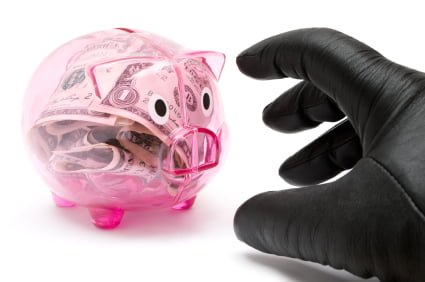Natural disasters and other world events that have caused severe emotional, financial, and physical distress in various countries have prompted a number of relief efforts and launches of charitable organizations.
Sadly, scam artists have started taking advantage of people’s generosity by setting up fake organizations, bogus websites and fraudulent causes to collect donations.
Here are some important things you should know about charitable contribution schemes:
What Are Charitable Donation Scams?
Charitable contribution scams are set up to appear to be reputable organizations or causes. The goal is to encourage people to send in donations – either via mail or electronic payment.
Scam artists often go as far as advertising the cause and using real natural disasters as a reason for collecting donations.
In reality, though, the contributions made by caring people don’t end up going towards any legitimate purpose – and the charitable “organization” may suddenly disappear after it has collected a certain amount of money.
How Charitable Donation Scams Work
These schemes are disguised just like legitimate donation-accepting organizations and may even have a website and contact phone number in use.
The individuals or groups behind these schemes intend to make donation requests under the guise of doing good or acting on behalf of a reputable cause.
They may ask for small sums of money to “help” a particular organization or provide support for victims of a natural disaster or other heart-breaking event.
In the wake of major hurricanes, earthquakes, tsunamis and other acts of God, these schemes have become even more prevalent and increasingly difficult to detect.
How to Avoid a Charitable Donation Scam
The Internet Crime Complaint Center (IC3) has prepared an intelligence note to advise people about fraudulent charitable contribution schemes.
You should be cautious when responding to unsolicited emails, and be skeptical of individuals that represent themselves as officials of an organization requesting donations solely via email. Don’t open attachments from unknown senders and don’t click on links embedded within an unsolicited email.
Remember, you can always contact the organization that the person is trying to solicit contributions for to determine if they are legitimate.
In any event, avoid providing personal or financial information to anyone who approaches you, unsolicited, for random contributions. Otherwise, if you divulge private data (like your bank account number, credit card information or even your Social Security number), you could end up becoming a victim of identity theft.
And if someone is requesting donations for a group you’ve never heard of, check them out first with the Better Business Bureau, verify that the group is a bona fide non-profit agency, and request to first see materials about the organization in writing.
You don’t have to be pressured to make an on-the-spot donation to any cause – including one you have heard of – just because someone calls you out of the blue on the telephone asking for money.
Take your time and only give what you can afford to give, not one someone makes you feel guilty to give, and not some “minimum” amount that they claim everyone else is giving.
Finally, you can also look up some of the latest scams and schemes at sites like www.snopes.com,
What to Do If You Fall for a Charitable Donation Scam
If you fall for a charitable contribution scheme, report the incident to your local police department. Document everything and give the authorities as much information as you have – like the date and time you were solicited, the (alleged) name of the person you spoke to, the group/organization they were soliciting donations for, any address and phone number they gave you, and so on.
If the fraud resulted from an online solicitation, also report the matter to the Internet Crime Complaint Center at www.IC3.gov.
Finally, if the crook got money from to purportedly help victims of a natural disaster, you should call the National Center for Disaster Fraud at (866) 720-5721 or by email at disaster AT leo.gov to let them know what happened too.










